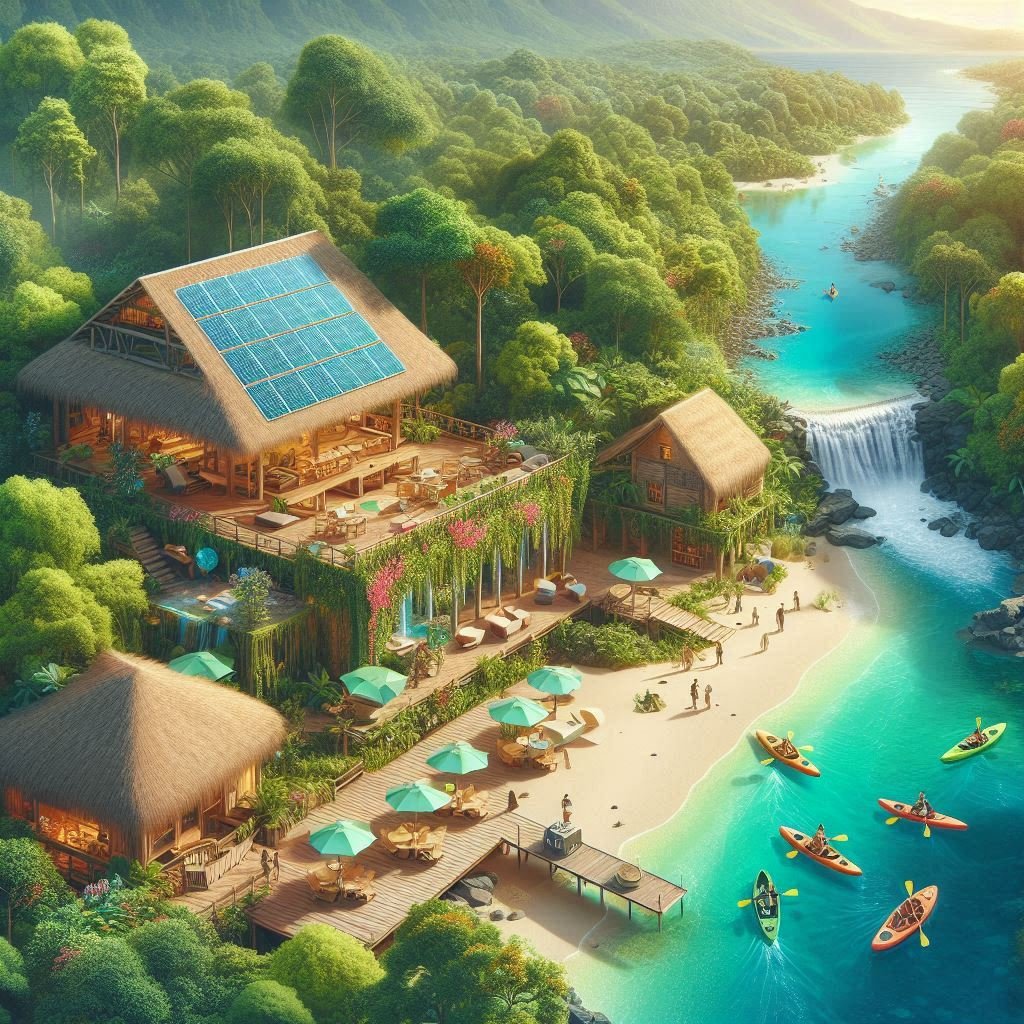
The future of sustainable travel is a fascinating and evolving journey. Over the years, as a traveler passionate about both exploration and conservation, I’ve witnessed significant changes that give me hope for a greener, more responsible way of exploring the world. Reflecting on my personal travel experiences, I see a promising future where reducing carbon footprints and promoting conservation are not just trends but fundamental aspects of how we travel.
One of the most noticeable changes I’ve observed is the growing awareness among travelers about their environmental impact. When I first started traveling, sustainability was not a primary concern for most people. However, in recent years, there has been a significant shift in mindset. Travelers are now more conscious of their carbon emissions and are actively seeking ways to minimize them. This awareness has led to the rise of eco-friendly travel practices such as choosing direct flights, using public transportation, and opting for accommodations that prioritize sustainability.
During my travels, I’ve had the opportunity to stay in various eco-friendly accommodations. These range from charming boutique hotels that incorporate renewable energy sources to luxurious eco-resorts that have adopted sustainable practices in every aspect of their operations. One memorable experience was staying at an eco-lodge in Costa Rica that was entirely off-grid. The lodge used solar panels for electricity, harvested rainwater for daily use, and sourced food from local organic farms. It was inspiring to see how a commitment to sustainability could coexist with providing a comfortable and enriching travel experience.
Another significant change I’ve noticed is the increasing popularity of slow travel. In contrast to the fast-paced, destination-hopping vacations that were once the norm, slow travel emphasizes spending more time in fewer places, allowing travelers to connect with local cultures and environments. This approach not only reduces carbon emissions by minimizing frequent flights but also fosters a deeper appreciation for the destinations visited. Personally, I’ve found slow travel to be incredibly rewarding. It allows me to immerse myself in the local way of life, engage with the community, and leave a positive impact through responsible tourism practices.
Promoting conservation has also become a central theme in sustainable travel. Many destinations now actively engage in conservation efforts to protect their natural and cultural heritage. During a trip to the Galápagos Islands, I witnessed firsthand the importance of these efforts. The islands have implemented strict regulations to limit the number of visitors and reduce human impact on the fragile ecosystem. Local guides and conservationists work tirelessly to educate tourists about the unique biodiversity of the islands and the importance of preserving it for future generations. Such experiences reinforce the idea that sustainable travel is not just about reducing our footprint but also about actively contributing to the preservation of the places we visit.
In recent years, I’ve seen a surge in sustainable travel initiatives led by both governments and private organizations. Many countries are now developing comprehensive strategies to promote eco-friendly tourism. For instance, Bhutan’s “High Value, Low Impact” tourism policy focuses on limiting the number of visitors to ensure that tourism benefits the local economy while minimizing environmental impact. Similarly, various travel companies and tour operators are adopting sustainability standards and certifications to attract environmentally conscious travelers. These initiatives not only drive positive change but also set a benchmark for the future of sustainable travel.
The advent of technology has played a crucial role in shaping the future of sustainable travel. Innovations such as electric vehicles, carbon offset programs, and smart travel apps are making it easier for travelers to make eco-friendly choices. During a recent trip to Scandinavia, I had the opportunity to explore cities using electric scooters and bikes. These convenient and eco-friendly transportation options not only reduced my carbon footprint but also allowed me to experience the cities in a unique and enjoyable way. Additionally, carbon offset programs offered by airlines and travel companies enable travelers to compensate for their emissions by supporting environmental projects. While these solutions are not perfect, they represent a step in the right direction toward a more sustainable future.
Looking ahead, I believe the future of sustainable travel will be characterized by a stronger emphasis on community-based tourism. Empowering local communities to take charge of their tourism resources can lead to more sustainable and inclusive travel experiences. During a visit to a rural village in India, I participated in a homestay program that was entirely managed by the local community. The program provided travelers with an authentic cultural experience while generating income for the villagers. Such initiatives not only promote cultural exchange but also ensure that the benefits of tourism are distributed equitably.
Education and awareness will continue to play a vital role in shaping the future of sustainable travel. Travelers need to be informed about the impact of their choices and the importance of responsible tourism. Social media and digital platforms have made it easier to share stories, experiences, and best practices related to sustainable travel. By leveraging these platforms, we can inspire others to adopt eco-friendly travel habits and contribute to a collective effort in preserving our planet.
As I reflect on my personal travel experiences and the changes I’ve witnessed, I’m optimistic about the future of sustainable travel. The journey toward a more sustainable way of exploring the world is ongoing, and it requires the collective efforts of travelers, governments, and the travel industry. By embracing eco-friendly practices, promoting conservation, and fostering community-based tourism, we can create a future where travel enriches our lives while preserving the beauty and diversity of our planet for generations to come.